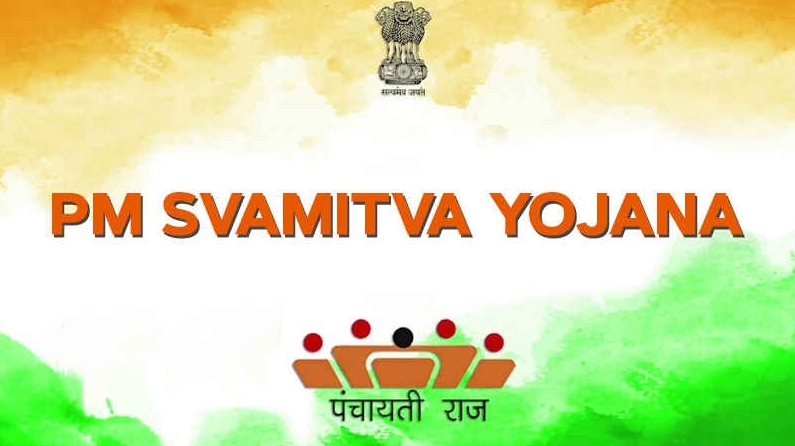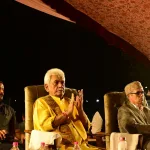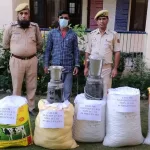The distribution of around 65 lakh SVAMITVA Property Cards on 18th January, 2025 marks a historic milestone in India’s journey towards rural empowerment and economic transformation. This initiative underscores the Government’s commitment to strengthening property rights and fostering inclusive rural development. It is a significant step towards empowering citizens, especially women and vulnerable sections of the society, while advancing the vision of a prosperous and developed India or Viksit Bharat.
Historically, rural women in India have been central to agriculture, household management and community life. Despite their significant contributions, systemic barriers have denied them legal recognition of the land they cultivate and maintain. This inequity has restricted women’s access to financial resources, opportunities and independence, perpetuating economic and gender disparities.
The SVAMITVA Scheme is reshaping this narrative by officially recognizing women as co-owners of land. This transformative initiative grants women equal shares in family property, empowering them both financially and socially. It is a vital step in advancing gender equality and fostering financial independence for women in rural areas.In rural India, land ownership extends beyond financial value—it represents social status and security. Without property rights, women often face financial instability, displacement, and domestic violence. By granting legal land rights, the SVAMITVA Scheme provides women with security and decision-making power regarding land use, access, and resources.
One of the scheme’s most impactful outcomes is the financial independence it offers women. Land ownership enables access to financial services like loans, credit, and insurance, which were previously inaccessible without formal land titles. This access allows women to invest in their families’ futures and establish financial stability.With the inclusion of women as co-owners in the property titles, rural women now have the ability to use their land as collateral for loans. For example, in Pune district, Maharashtra, local authorities actively encouraged women to become co-owners of properties. As a result, the percentage of residential properties jointly or solely owned by women rose dramatically from 16% to 88%.
This shift has empowered women to access loans, start businesses and achieve financial independence while reducing property disputes and enhancing economic stability.Similarly, in Madhya Pradesh, the inclusion of women as co-owners under the state’s Land Revenue Code has had transformative effects. Women like Smt. Shaliya Siddiqui from Harda have shared how receiving property cards through the SVAMITVA Scheme secured their land and provided legal backing to protect their rights. This empowerment has enabled access to loans, agricultural support, and other financial resources, significantly improving their quality of life.
Beyond financial and legal empowerment, the scheme represents a critical social milestone. For many women, property ownership fosters a sense of security, recognition, and belonging within their families and communities. It challenges cultural norms that have historically excluded women from property-related decisions, enabling them to take active roles in household and community governance.By securing land rights, the SVAMITVA Scheme addresses deep-rooted gender biases and empowers women to participate in decision-making processes. Legal recognition strengthens their standing within families and society, offering greater control over household resources and reducing the risk of displacement or rights violations during property disputes. In times of financial or personal crises, land ownership serves as a protective buffer, enabling women to assert their rights and secure their livelihoods.
Moreover, the scheme aligns with the United Nations’ Sustainable Development Goals (SDGs), particularly Goal 1, which aims to end poverty, and Sub-Goal 1.4.2, which emphasizes strengthening tenure security for vulnerable groups, including women. By recognizing women as property owners, the SVAMITVA Scheme contributes significantly to these global goals, fostering inclusive and sustainable development.
The benefits of secure land rights extend beyond individual households. Women who own land are better positioned to access financial services, improve education and health outcomes for their families, and reduce gender-based violence. Empowered landowners gain autonomy over economic choices, enhance their social status, and actively participate in community affairs. This creates a ripple effect, with women reinvesting in their communities, strengthening local economies, and driving sustainable growth.
The scheme’s success is evident in states like Maharashtra and Madhya Pradesh, where its implementation has brought tangible benefits. With 13 states already adopting women’s co-ownership in property, there is hope that more states will follow suit, extending the scheme’s transformative impact across rural India. The scheme’s implementation has achieved remarkable progress across 31 states and union territories. Drone surveys have been completed in 3.17 lakh villages, covering an area of 67,000 square kilometres. This comprehensive mapping exercise has unlocked an estimated economic value of land amounting to Rs 132 lakh crore, showcasing the scheme’s potential to transform rural economies.
As India strives towards its vision of becoming a developed nation by 2047, the SVAMITVA Scheme serves as a critical enabler of rural transformation. By formalizing property rights, enabling access to credit systems, and promoting women’s economic empowerment, the scheme lays a strong foundation for inclusive growth. Its use of modern GIS technology and accurate land records further supports development programs and strengthens rural governance.
The distribution of 65 lakh property cards on a single day is more than just a transfer of documents; it symbolizes the government’s commitment to empowering rural citizens and ensuring their active participation in India’s development journey. By equipping rural communities with the tools and resources needed to contribute meaningfully to the vision of Viksit Bharat, the SVAMITVA Scheme is creating a more equitable and prosperous rural India for generations to come.
In conclusion, the SVAMITVA Scheme is not merely a policy but a transformative initiative that breaks barriers, empowers women, and drives social and economic change. By giving women, a stronger voice, greater financial independence, and a brighter future, the scheme stands as a powerful example of how legal reforms can catalyse inclusive development and build a more equitable society.
(The Author is Additional Secretary, Ministry of Panchayati Raj. Courtesy: PIB)








